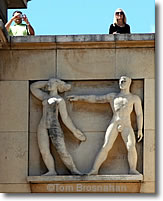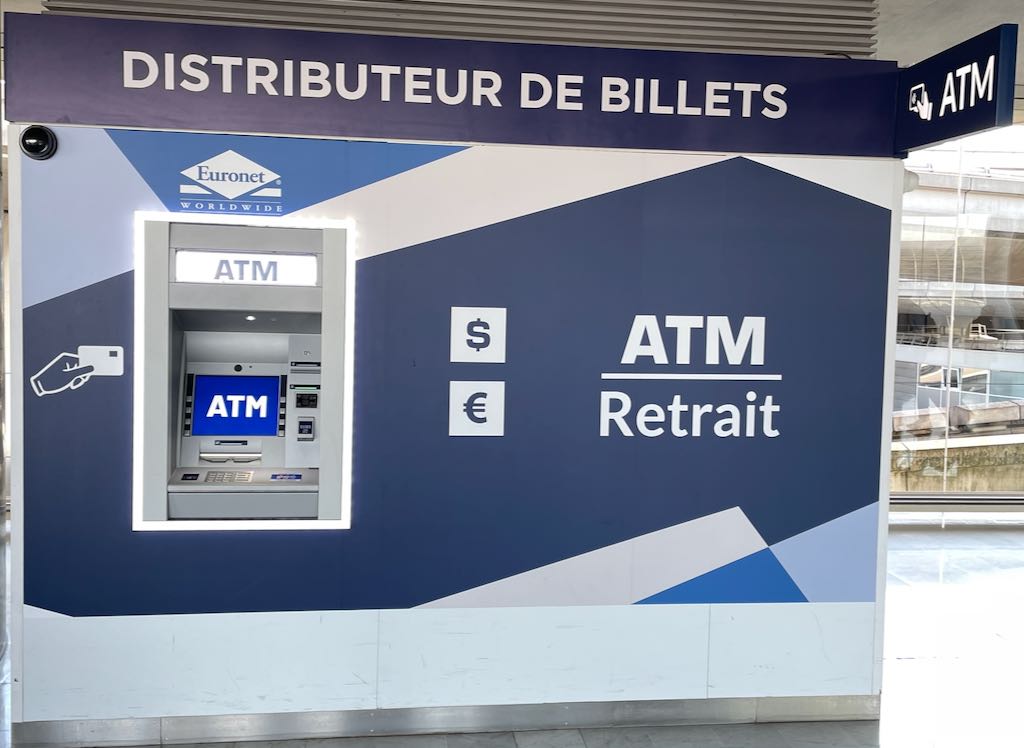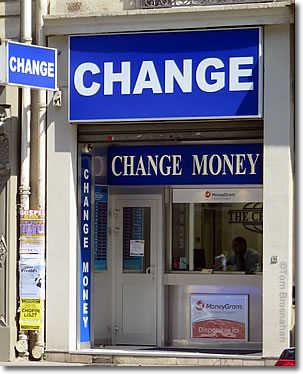 |
Euro Exchange Rates for France | |
|
Here's how to learn
what that euro price is
in your own currency, and how to avoid airport currency exchange ripoffs in Paris & France.
|
||
|
|
|
Most people use smartphone payment apps and/or credit or debit cards for financial transactions these days—including in France—but you should know about how to obtain and use cash euros. You may need some in certain situations. Why Currency Exchange MattersMany travelers don't pay much attention to currency exchange rates. This can make their trip much more expensive. When you exchange your home currency for euros, you are buying money. Whenever you buy anything at all, prices for what you are buying may vary. It's no different when buying money. You've spent time finding the best airfares and hotel prices, so spend a little more to learn how currency exchange works and how to save money. More... International Currency AppsWe go to France several times per year to update FranceTravelPlanner.com, so we regularly need to make payments in euros. To avoid bad exchange rates and excessive fees, we use a service called Wise (formerly TransferWise), which offers international electronic banking and currency exchange at advantageous rates. We set up a Wise account, transfer dollars to it from our bank, then convert the dollars to euros as we need them via the Wise smartphone app or website. Transfers and payments take place immediately (unlike banks, which may take days). Fees are low, or non-existent. We also ordered a Wise Debit Card, which can be used like any bank debit card to pay for things or to obtain cash from an ATM. We save money because Wise debits our account in the currency of the purchase, so there's no additional currency exchange commission or fee paid on the transaction. There are other, similar services available. We recommend this one because we researched it, we've used it for years, and we find it reliable and advantageous. More... Airport Currency ExchangeIf you arrive by air in France, you may need some euro cash for transportation to the city center. Exchanging currency at airports is almost always a huge ripoff as airport currency exchange booths (often operated by Travelex) and ATMs at the airport (which may be operated by the same company as the currency exchange booths) use exchange rates much poorer than you get at ATMs in the city center. Then the currency exchange companies pile on commissions, charges and fees, as well as dirty tricks like "dynamic currency conversion," so that in the end you may pay 10% to 20% for the exchange, receiving as little as US$80 equivalent in euros—or even less!—for the US$100 you pay.
Dynamic currency conversion, by the way, is when an ATM gives you the choice to have the costs (commissions, fees) of your currency transaction paid in your home currency; so instead of seeing a commission of, say, 20€ on your receipt, you'll see US$25. This means that the fees you pay will go through yet another conversion process, costing you even more money! To save money, always refuse the option to pay charges in your own currency. Our Advice1. Note the currency exchange rate online before going to the airport so that you're aware of what a good or bad rate may be. Use the Wisse currency converter on this page, or another online source such as Oanda.com, xe.com, Yahoo! Finance, or Google Finance Converter, or a currency conversion app on your smartphone. You'll probably get unbiased mid-market rates, so you'll know how many euros you "should" receive for the amount of your currency you wish to exchange. 2. If you must change money at a currency exchange booth or withdraw euros from an ATM at the airport, change only as much as you'll need to go to the city center, where exchange rates at ATMs will probably be better. 3. Don't use cash! If possible, use your credit or debit card to pay for your transportation from the airport to the city center (private transfer, train or bus ticket). In general, it's probably best to use debit and/or credit cards instead of cash euros for as many transactions as you can during your trip, especially if your credit card is one that does not charge foreign exchange fees. Here's more on debit and credit card use in France. 4. If you take a taxi from the airport, ask the driver to stop at an ATM (distributeur de billets) in the city center so you can get euros there to pay for the ride. (As the driver will not be paid unless s/he does, this works.) 5. Before leaving home, ask friends if they have leftover euros you can buy. If you travel to Europe more than once, return home with some extra euros in your pocket for use at the beginning of your next trip. If you have euros left after a trip, sell them to a friend at a mutually advantageous rate of exchange. About Debit & Credit CardsKeep in mind that if your debit or credit card doesn't have a computer chip in it, you probably won't be able to use it in France. More... Money-Saving TipsHere's information on the euro. Here are average prices for travel costs in Paris. Here are tips for saving money in France.
|
|
Hotel Map with Prices:
|




